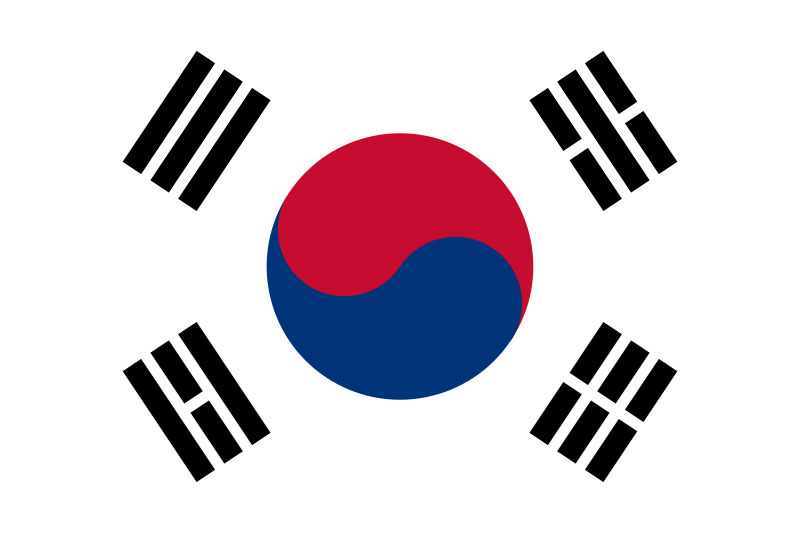HISTORICAL BACKGROUND
The Constitutional Court ruled in 1989 that there is a constitutional right to information "as an aspect of the right of freedom of expression and specific implementing legislation to define the contours of the right was not a prerequisite to its enforcement."
(1)
The
Act on Disclosure of Information by Public Agencies was enacted in 1996 and went into effect in January 1998.
(2) It allows citizens to demand information held by public agencies. Those requesting information must provide their names and resident registration numbers and the purpose for the use of the information. A separate Presidential Decree allows access by foreigners who are residents, in the country temporarily for education or research, or companies with an office in Korea. Agencies must decide in 15 days.
The Act does not apply to information collected or created by agencies that handle issues of national security. There are eight categories of discretionary exemptions: secrets as defined in other acts; information that could harm national security, defense, unification or diplomatic relations; information that would substantially harm individuals, property or public safety; information on the prevention and investigation of crime; information on audits, inspections, etc. that would substantially hamper the performance of government bodies; personal information about an individual; trade secrets that would substantially harm commercial or public interests; and information that would harm individuals if disclosed, such as real estate speculation or hoarding of goods. Information, however, can be released once the passage of time has reduced its sensitivity.
Agencies must set up an information disclosure deliberative committee to determine release. Those denied can appeal to public agencies; further appeal can also be made to the head of the central agency under the Administrative Appeals Act. Judicial review is provided under the Administrative Litigation Act in cases where an individual's "legal interest is violated due to the disposition or omission of public agencies." The courts have been active in promoting a right of access and have found that disclosure should be the rule not the exception.
(3) The Supreme Court ruled in October 2004 that the military could not withhold information on the 1979 coup and the 1980 democratic uprising.
The Ministry of Government Administration is in charge of oversight and planning for the Act and can inspect and review the activities of state agencies.
(4) The Cabinet Legislation Bureau eliminated a provision in the draft bill for an Independent Information Disclosure Commission.
The Korean Government has also been active in promoting electronic government as a means of improving access to information and to fight corruption.
(5) The Online Data Release System allows for citizen to obtain information from government departments using a website.
(6)
However, reviews have found problems with frequent improper denials of requests, the failure of government agencies to publish lists of available documents, and a disregard and non-enforcement of the Act.
(7) A coalition of citizens and anti-corruption groups launched the Korean Social Pact on Anti-Corruption and Transparency (K-Pact) in 2005, calling for the law to be amended to improve public access to information to fight corruption.
(8)
The Military Secrets Protection Act sets rules on the disclosure of classified information.
(9) It was revised in 1993 following a decision of the Constitutional Court that the Act was constitutional only if the secrets are marked as classified following a legal procedure, and would create a clear danger to national security.
(10) Two members of the opposition Grand National Party were sanctioned by the National Assembly's Ethics Committee in 2004 for releasing a classified report that estimated that Seoul would be captured in 16 days if it were invaded by North Korea unless US forces intervened. A committee was set up in 2004 to review the role of members of the Korean military who collaborated with the Japanese occupiers.
The
Act on Protection of Personal Information Maintained by Public Agencies allows individuals to obtain and correct personal information held by government agencies.
(11) The Ministry of Government Administration and Home Affairs (MOGAHA) is responsible for overseeing the Act. The
Act on Promotion of Information and Communications Network Utilization and Data Protection provides for a right of access to personal information held by telecommunications companies, travel agencies, airlines, hotels and educational institutes.
(12)
The Public Records Management Act regulates the maintenance and use of archived records.
(13) Most are accessible after 30 years. Secret records must be reviewed for declassification. A list of all records produced between 1998 and 2003 was released in January 2005 to facilitate access to records.
(14)
2004 freedominfo.org Global Survey Results - South Korea
NOTES
1. Right to Information (1 KCCR 176, 88HunMa22, 4 September 1989).
http://www.ccourt.go.kr/english/decision10year.htm
2. Act on Information Disclosure by Public Agencies, Act No. 5242, 31 December 1996.
http://www.freedominfo.org/documents/korea%20980258118__korea.doc
3. See Kyu Ho Youm, Freedom of Expression and the Law: Rights and Responsibilities in South Korea, 38 Stan. J Int'l L. 123, Winter 2002.
4. Homepage:
http://www.gcc.go.kr/english/main.asp
5. See Government Computerization Centre.
http://www.gcc.go.kr/english/sub02/index-2.html; Seoul Open System.
http://english.metro.seoul.kr/government/policies/anti/civilapplications/
6. See Ministry of Government Administration and Home Affairs.
http://www.gcc.go.kr/english/sub02/sub02_1_2.asp
7. See Heungsik Park, Reform of Administrative Transparency in Korea: The Case of Korea (Friedrich Naumann Stiftung). Also see Transparency International, National Integrity Systems 2001: Republic of Korea.
8. Korean Social Pact on Anti-Corruption and Transparency, March 2005.
http://pact.or.kr/english/images/kpact.pdf
9. Military Secrets Protection Act, Act No. 4616 (1993). See
http://www.mnd.go.kr/cms.jsp?p_id=01918020000000
10. Military Secret Leakage case, 4 KCCR 64, 89Hun-Ka104, 25 February 1992. See The Constitutional Court, The First Ten Years of the Constitutional Court, 2001.
http://www.ccourt.go.kr/english/decision.htm See Kyo Ho Youm, Freedom of Expressional and National Security in South Korea in Coliver.
Secrecy and Liberty: National Security, Freedom of Expression and Access to Information, Martinus Nijhoff Publishers.
11. Act on Protection of Personal Information Maintained by Public Agencies.
http://www.cyberprivacy.or.kr/english/pds/a_3.pdf
12. The Act on Promotion of Information and Communications Network Utilization and Data Protection.
http://www.cyberprivacy.or.kr/english/pds/a_2.doc
13. See review at
http://www.archives.go.kr/e_gars/html_system/law_contents.asp
14. Official Records List Promises Greater Transparency, Chosun, 30 January 2005.




















